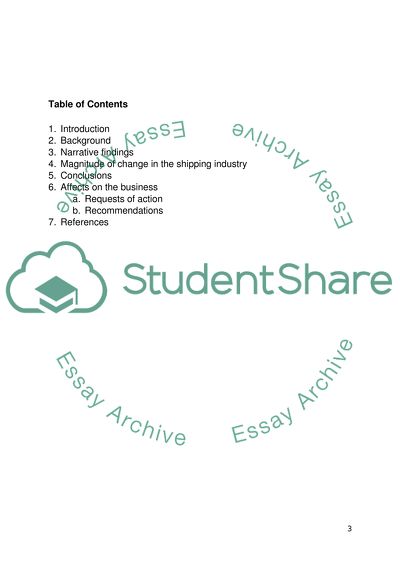Cite this document
(“SUBJECT: Maritime Operations. TITLE: With reference to the history of Essay”, n.d.)
SUBJECT: Maritime Operations. TITLE: With reference to the history of Essay. Retrieved from https://studentshare.org/miscellaneous/1585583-subject-maritime-operations-title-with-reference-to-the-history-of-so-called-open-registers-discuss-those-factors-which-might-influence-a-ship-owners-choice-of-flag-state-in-todays-world
SUBJECT: Maritime Operations. TITLE: With reference to the history of Essay. Retrieved from https://studentshare.org/miscellaneous/1585583-subject-maritime-operations-title-with-reference-to-the-history-of-so-called-open-registers-discuss-those-factors-which-might-influence-a-ship-owners-choice-of-flag-state-in-todays-world
(SUBJECT: Maritime Operations. TITLE: With Reference to the History of Essay)
SUBJECT: Maritime Operations. TITLE: With Reference to the History of Essay. https://studentshare.org/miscellaneous/1585583-subject-maritime-operations-title-with-reference-to-the-history-of-so-called-open-registers-discuss-those-factors-which-might-influence-a-ship-owners-choice-of-flag-state-in-todays-world.
SUBJECT: Maritime Operations. TITLE: With Reference to the History of Essay. https://studentshare.org/miscellaneous/1585583-subject-maritime-operations-title-with-reference-to-the-history-of-so-called-open-registers-discuss-those-factors-which-might-influence-a-ship-owners-choice-of-flag-state-in-todays-world.
“SUBJECT: Maritime Operations. TITLE: With Reference to the History of Essay”, n.d. https://studentshare.org/miscellaneous/1585583-subject-maritime-operations-title-with-reference-to-the-history-of-so-called-open-registers-discuss-those-factors-which-might-influence-a-ship-owners-choice-of-flag-state-in-todays-world.


